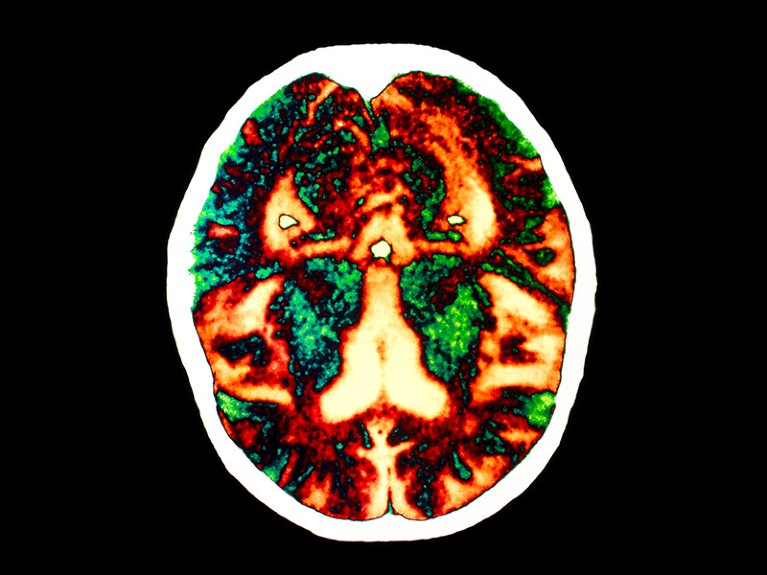
A coloured computed-tomography scan of a brain affected by Alzheimer’s disease.Credit: Zephyr/Science Photo Library
Researchers have found more evidence supporting a controversial theory that the sticky proteins linked to Alzheimer’s disease can be transferred from one person to another through specific surgical procedures. The study stresses that the research is based on a small number of individuals and is connected to outdated medical practices. The research indicates that the amyloid protein, which was present in the hormone preparations, may have been ‘seeded’ in the brains and caused the damage. This work is a continuation of the team’s previous studies of people who received cadaver-derived growth hormone.
In 2015, Collinge’s team discovered amyloid-beta deposits in the post-mortem brains of four people who had been treated with the growth hormone. This research led to the question of whether the contaminated hormone preparations might have also led the people who received it to develop Alzheimer’s disease. In the latest study, the researchers found that 5 out of 8 people who had received the hormone treatment in childhood but did not develop Creutzfeldt-Jakob disease developed early-onset dementia later in life, between ages 38 to 55. The authors argue that their studies suggest that in rare cases, Alzheimer’s disease could be transmitted through the transfer biological material.
Early-onset Alzheimer’s is generally caused by certain genetic variants, but the researchers did not find these variants in three of the people who showed signs of Alzheimer’s and had DNA samples available for testing. “This is consistent with these patients having developed a form of Alzheimer’s disease resulting from childhood treatment with this contaminated pituitary hormone,” says Collinge.
The small study size limits the strength of the findings, says neuroscientist Tara Spires-Jones at the UK Dementia Research Institute at the University of Edinburgh, UK.
From a public-health perspective, there is no need to be concerned about ‘transmissible’ dementia today, says Spires-Jones. Despite the study’s limitations, the research furthers our understanding of neurodegenerative diseases, say scientists.












/cdn.vox-cdn.com/uploads/chorus_asset/file/25658467/1133148647.jpg)